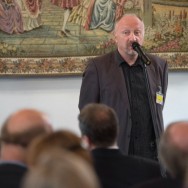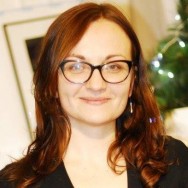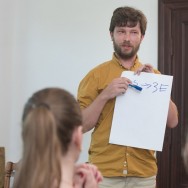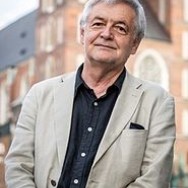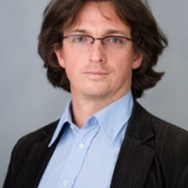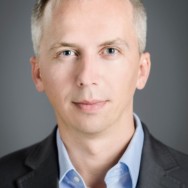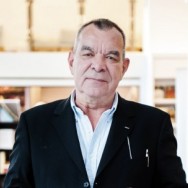Deputy director of the Centre for Thought of John Paul II (Warsaw), assistant professor (Institute of Sociology, University of Warsaw), visiting scholar at the Centre for Social Studies (Warsaw), Columbia University (NY, Fulbright) and the Institute for Human Sciences (Vienna), an editor-in-chief of a scholarly, antidisciplinary journal “Stan Rzeczy/State of Things” and an editor of “44/Forty and four. An Apocalyptic Magazine”. He is co-/author of the following books: „Culture of remembrance in Poland and Germany” (2011), “Landscape value” (2011) and award-winning “Eternal Nation. Pole and Catholic in the village of Żmiąca” (2012). He specializes in historical sociology, sociology of nation and nationalism, sociotheology, social memory, Polish-German relations, and methodology of social sciences.
Experts
Zbigniew Machej
Freelance writer, translator of both Czech and Slovak and a journalist. Currently Deputy Director of the International Visegrad Fund, he has had a long career working throughout the Visegrad countries. Educated in Krakow, where he completed a Masters of Arts in Comparative Religion. Following on from the completion of his Master's, he briefly thought Polish literature for a few years, before becoming Deputy Director of the Polish Institute in Prague in 1991. Since then, he has spent his time between helping organise Krakow's hosting of the European capital of culture in 2000, and returning to the Polish Institute in 2000. After leaving the institute again in 2004, he spent a couple of years focusing on journalism and writing. In 2006, Mr. Machej became Director of the Polish Institute in Bratislava where he remained until 2010.
Olga Maksymenko
She is public relations professional and career and life coach, author of LIFE STYLIST project. Holds MA in Sociology from Kyiv National Taras Shevchenko University, MA in Political Science from Central European University (Hungary) and Advanced Certificate in PR from Chartered Institute of Public Relations (CIPR, UK). She has extensive experience in public relations, worked for business, NGO sectors and diplomatic representations, including EU Delegation to Ukraine and British Embassy to Ukraine. As a certified life and career coach, she helps recent graduates and young professionals who are already part of the working world to identify the career they desire and deserve and to navigate the transition towards it.
Eszter Neuberger
A young scholar and a journalist. Holds BA in Media an Communication Studies with Journalism specialization, currently researching the public discourse on Holocaust in post-WWII Hungary for her master degree in Media Research at Eötvös Loránd University of Budapest. From this September Eszter will focus on Nationalism Studies at Central European University. Besides her academic activities Eszter is a permanent guest author of hvg.hu (the online edition of HVG weekly) writing mostly about civil society, the social welfare system and covering topics related to unprivileged groups of society. She is a VSS alumna from 2012.
Katarzyna Oyrzanowska
Works for UNHCR as a specialist for Integration of Refugees UNHCR.
Tomasz Padło
Freelance photographer and co-founder of Bezgranica Foundation dealing i.a. with exposing and describing the phenomenon of stability of relict boundaries. He treats photography as a representation of reality and uses it for knowledge promotion, therefore he focuses mostly on documentary photography, in particular on the little-invasive street photography. For many years he has been involved in studying the problem of perceiving Europe. It has also diverted his photographic interest into this issue, after taking up trials to recognize and understand the Orient. He is a geographer by profession and has been appointed as an Assistant Professor in the Institute of Geography of the Pedagogical University of Cracow.
Jan Piekło
Ambassador of Republic of Poland to Ukraine and former director of the Polish-Ukrainian Cooperation Foundation (PAUCI) which manages the trans-border projects with Ukraine, Moldova, Georgia and Armenia. Previously program director for ZNAK Foundation in Krakow and the editor of “Tygodnik Powszechny”. As a journalist, he covered the Romanian Revolution and war in the former Yugoslavia. Author of two documentary books on the Balkans and a novel Scent of the Angel which is based on his work experience in the Balkans and Eastern Europe. He has been working for the Polish and international media. As a conflict resolution journalism trainer and media consultant he co-operated with the Rutgers University of New Jersey, MU Columbia School of Journalism, Jagiellonian University of Krakow, IREX Pro Media, Groeningen University and other institutions. He was involved in journalism and civil society trainings in Bosnia, Slovakia, Ukraine, Romania and Poland.
Szabolcs Pogonyi
Assistant Professor in the Nationalism Studies Program at Central European University. He received his PhD in 2008 in Philosophy from ELTE, University of Budapest, where he specialized in political theory. His current research in political theory focuses on normative and institutional questions of nationalism studies, citizenship theory, debates about multiculturalism, standards of minority rights protection and distributive justice. He is member of the EUDO Citizenship research consortium. He is the author of several articles in political theory and editor of books in the history of political thought. His papers in citizenship studies were published in Nationalities Papers, Ethnopolitics, the ECMI Yearbook and the EUDO Citizenship paper series. Szabolcs Pogonyi is also the editor of Phronesis, a Hungarian political philosophy quarterly and BudaPost, a daily review of Hungarian news.
Wojciech Przybylski
Wojciech Przybylski leads the largest strategic foresight program on European policies in Central Europe. He is the editor of Visegrad Insight at the Res Publica Foundation in Warsaw. Previously, he served as the editor-in-chief of Res Publica Nowa and later of EUROZINE, a pan-European network of cultural magazines. He is a guest lecturer for the Foreign Service Institute for the U.S. Government, the Central European University Democracy Institute, and the Pázmány Catholic University in Budapest. He is a graduate of MISH at the University of Warsaw, a Europe’s Future Fellow at the Institute for Human Sciences (IWM) in Vienna, and a member of the advisory board for LSE IDEAS Ratiu Forum, the European Forum for New Ideas, and the Schmidt Futures International Strategy Forum. He has published works including "Understanding Central Europe" (Routledge 2017) and "On the Edge. Poland" (Culturescapes 2019). Twitter: @wprzybylski
Lászlό Rajk
Architect and designer, a former Hungarian dissident. A Doctor of Liberal Arts from Budapest University of Technology and Economics, Faculty of Architecture. In 1998, he was one of the founders of the Network of Free Initiatives and the Liberal Party, the Alliance of Free Democrats. Between 1990–1996 he has a Member of the Committee on Foreign Affairs, Committee on Culture and Member of the Parliament. Since 1992 he has worked as a Professor of Film Architecture at the Hungarian Film Academy in Budapest. From 1995–98 he was an advisor to the Hungarian National UNESCO Committee (World Heritage). In 2003, he became Legal Cultural Advisor to the European Union. A winner of numerous awards, including the Imre Prize (for the design of the reburying of the Martyrs of 1956), and in 2005, Commander’s Cross of the Order of Merit and the Solidarity Award (Poland). Since 2014 giving lectures and master classes at the Center for Human Values at Princeton University, at the Library of Congress in Washington and the Film Factory Sarajevo University. Art director of “Son of Saul” which wonOscar andGrand Prix at Cannes Festival in 2015.


